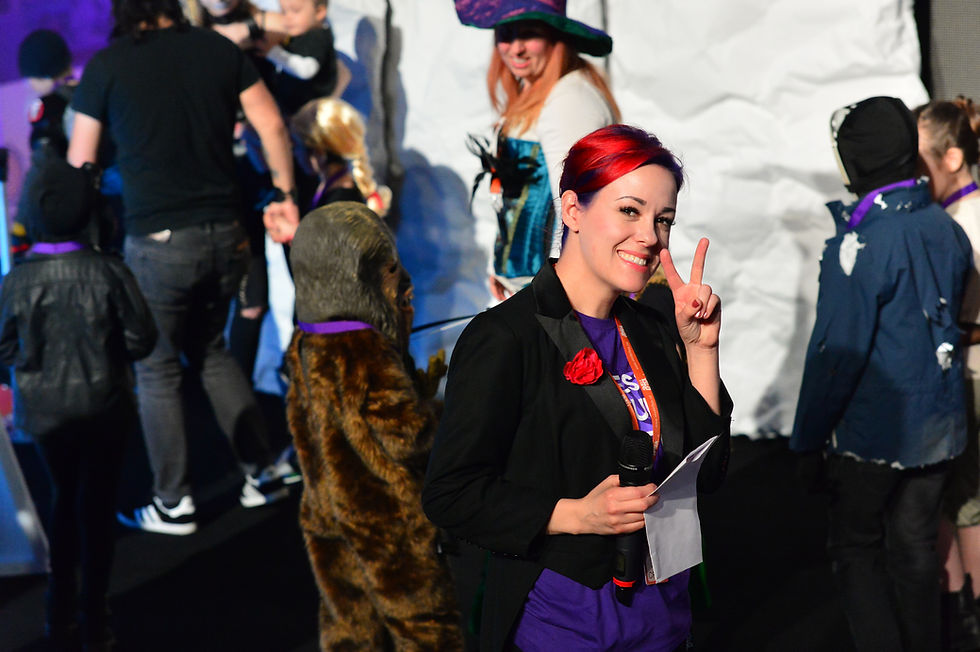The delicate balancing act of the studio/publisher relationship
- The Goose

- Apr 12, 2021
- 3 min read
Updated: Aug 24, 2022
The experience of developing a game in collaboration with a publisher is difficult to understand from the outside. Can you set creative boundaries? What's the trick to managing expectations? How can you make these relationships positive and productive?
Aspiring developers creating or launching games are invited to get a close look at this delicate process. Join us for Friday Stories on April 16th, when Mirage Game Studio's Managing Director Simon Röjder will offer a detailed retrospective of producing the sandbox game Little Big Workshop in partnership with the publisher THQ Nordic.
Before the event, we asked Simon to share how he got involved with his publisher and why it’s a tricky route for first-time developers.

Source: THQ Nordic
A good idea, a good team, and a lot of trust
It’s possible to imagine pitching your game to a publisher that results in a generous contract that allows you to realize your vision. Simon cautions that this is ‘the romantic view.' He offers the analogy of successful writers. When you’re established, he explains, people ask to publish your book, and they wouldn’t dream of getting involved. For unknown writers, however, publishers ‘can be much bossier.’

Simon is quick to point out that bossy isn’t how he'll characterize the publisher of his first game. Instead, Mirage Game Studios cultivated a relationship with THQ Nordic that ‘allowed us to maintain our vision for the game. We’re literally owned by them - 100% - but they still let us do what we want, and that is kind of special.’
In part, Simon and his team were trusted because of their individual professional track records. Simon, for example, had run a distinguished consultancy developing concept art and assets for many years. So, while this was his ‘breakout project,’ he’d been a long-time contributor to successful studios.
This factored into the pitch. ‘We had two weekends to make a prototype of our idea,’ he explains, ‘and that’s what we pitched. We came in with a good team - just three or four people - and this promising idea.’
Still, Simon adds, it was a risk to take the project on so early in the process. Instead of being unleashed to produce whatever they wanted, Mirage Game Studios would have a closer working relationship with its partner:
‘For them, it was a big risk, but they felt the idea was cool, so they took complete ownership because it’s a big investment, and it made sense to do it that way. We were essentially employed - and we were fine with that. It meant a good setup for making our first game with our team, we’d get our royalty share, and we’d get help with the stuff we didn’t want to get involved with. We had no interest in marketing and no idea how to get this game out in the world. We just wanted to make a cool game; we needed someone else to take care of the rest.’
A challenging route for young developers

Would Simon recommend that aspiring developers take this approach to produce and launch a game? Not exactly.
First, managing relationships that are part-creative part-business takes a degree of pragmatism that young developers can find difficult in the throes of making a game. Preoccupied with that process, they can struggle to see things from another perspective. ‘The reason we survived this whole thing,’ Simon explains, ‘was that I had a lot of experience working with clients as a freelancer. I was used to getting hard feedback and forcing myself to look at what I was doing from someone else’s perspective.’
Simon emphasizes the importance of humility. As creative and passionate people, game makers ‘tend to assume everyone likes what you’re doing and understands what you’re doing, but they don’t. It’s not as given as you think.’ Demonstrating how challenging this can be, he offers: ‘That’s still a challenge for us.’
Second, when working with publishers, you have to be willing to kill your darlings. This phrase means to let go of things you’re passionate about. ‘We use it daily at the studio,’ he laughs, illustrating the importance of professional experiences, good and bad. The give and take required to develop a game with a publisher means not holding on to what holds you back - a constant challenge.
Finally, the approach Simon and his team took is ‘near impossible’ for graduates and junior progressions without the resume and portfolio to back up their pitch. ‘A publisher might glance at your idea,’ Simon warns, ‘but they’ll have no way of knowing if you’re capable of delivering it.’
With more experience comes greater success at building and maintaining partnerships with publishers, just a Simon did in the development and launch of his first game.




Comments